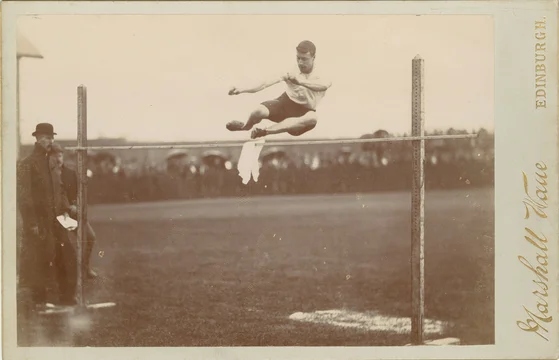
Earlier this month, Judge Williams denied a defendant’s motion to bifurcate a second patent trial in Cirba, Inc. et al v. VMware, Inc., C.A. 19-742, D.I. 1623 (D. Del. Mar. 7, 2023) (oral order). In that case, the patentee had won an initial victory at trial, but the Court later granted a motion for a new trial based on evidentiary issues.
The defendant moved to stay the second trial because nearly all of the patents at issue had been found invalid—or were in danger of being found invalid—during a pending re-exam proceeding. The parties finished briefing, but the Court has not yet ruled or heard oral argument on the motion to stay. Prior to the motion to bifurcate, the parties stipulated to sever the claims pending IPR/re-exam and stay the case as to those claims. In the alternative to a stay the remaining claims of the case, the defendant moved to bifurcate direct infringement and invalidity from willfulness, knowledge and intend for induced infringement, and damages.
Judge Williams found, however, that “jury deliberation in the middle of this trial could derail [the set time for this trial] schedule” and it “would not result in time saved”:

Having reviewed the parties' briefs . . . IT IS HEREBY ORDERED that Defendant's Motion to Bifurcate Trial (D.I. 1584) is DENIED. [Rule] 42(b) permits the Court to order a separate trial of one or more separate issues "[f]or convenience, to avoid prejudice, or to expedite and economize . . . ." If a party moves for bifurcation, it has the burden to establish that bifurcation "is appropriate." . . . The district court has "broad discretion" when it decides "whether to separate the issues[,]" . . . , though "bifurcation remains the exception rather than the rule.'" . . . The Court "should consider whether bifurcation will avoid prejudice, conserve judicial resources, and enhance juror comprehension . . . .'". . .The first trial was not bifurcated, and Defendant has failed to meet its burden to establish that bifurcation is appropriate for the second trial. . . . The Court finds that a bifurcated trial would not conserve judicial resources. The Court has allocated a set time for this trial and bifurcation resulting in a jury deliberation in the middle of this trial could derail this schedule. Thus, the Court finds bifurcating the trial would not result in time saved. Because the Court denies Defendant's Motion to Bifurcate Trial (D.I. 1584), Plaintiff's Motion for Leave to File a Sur−Reply in Opposition to Defendant's Motion to Bifurcate Trial (D.I. 1607) is DENIED as MOOT. IT IS ALSO HEREBY ORDERED that, in light of the Court granting the parties' joint stipulation to sever and stay all claims relating to [two patents], the Court will allocate six (6) days for this jury trial . . . .
Cirba IP, Inc. v. VMware, Inc., C.A. 19-742-GBW, D.I. 1623 (citations omitted).
Judge Williams' order is consistent with Plaintiff's opposition brief, which asserted that "bifurcation is decided based on the circumstances of each individual litigation—not generalities" and "Judge Connolly recently chose not to bifurcate the second trial in a three part-series because the first trial was not bifurcated." D.I. 1598 at 12 (citing SenoRx, Inc. v. Hologic, Inc., 920 F. Supp. 2d 565, 567 (D. Del. 2013)).
Bifurcation is Frequently Denied—Even for First Trials
Generally, judges in the District of Delaware tend to decline requests to bifurcate trial, but there have been some exceptions. See generally Sprint Communications Company L.P. v. Charter Communications, Inc. et al., C.A. 17-1734-RGA at 2 (D. Del. Mar. 16, 2021) (“[B]ifurcation remains the exception rather than the rule.”) (citation omitted). My research indicates that recent bifurcation opinions continue to follow this pattern.
During the pandemic, we saw that the Court’s congestion weighed against bifurcation. We haven't seen this congestion reasoning used as much lately, but bifurcations are still uncommon.
General Trends in Proposed Phase Content
In recent bifurcation opinions, parties seem to propose phase content splits that fall into a few general categories, though none of these categories seem particularly favored by the Court.




Most frequently, parties propose that damages be separated into phase two, sometimes with added elements including willfulness and knowledge and intent of induced infringement.
There are also a few examples in which parties have attempted to bifurcate patent claims from non-patent claims (e.g., patent claims vs. antitrust counterclaims). Other variations include attempts to separate infringement from invalidity. See Intercept and Magnolia Medical. In one case, Fraunhofer-Gesellschaft, the parties narrowed the claims by stipulation, and plaintiff later attempted to pursue the excluded claims ("un-elected claims") in a bifurcated proceeding. For a downloadable summary of these holdings, see the handout at the bottom of this page.
Future Bifurcation Cases
Judge Connolly recently noted that he might be interested in bifurcating Personal Audio LLC v. Google LLC. No order has issued yet, but if you've got a bifurcation issue coming up, that could be a case to watch. See Personal Audio, LLC v. Google LLC, C.A. No. 17-1751-CFC/CJB, D.I. 754 (D. Del. Feb. 28, 2022)(noting that the Court was "inclined to try the case in phases" to avoid pitfalls with authenticity and related issues).
If you enjoyed this post, consider subscribing to receive free e-mail updates about new posts.






